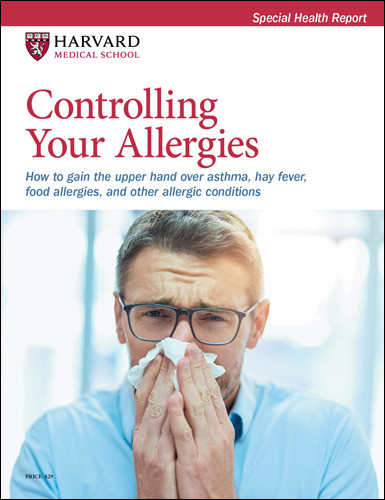Simpler way to test for true penicillin allergy
In the journals
- Reviewed by Howard E. LeWine, MD, Chief Medical Editor, Harvard Health Publishing; Editorial Advisory Board Member, Harvard Health Publishing

The standard method to confirm a true penicillin allergy usually begins with a skin test. If that shows no reaction, the person then receives an oral penicillin challenge in which the drug is given in small, gradually increasing amounts to diagnose or rule out an allergy. Traditionally, this is done in an allergist's office. However, only a small minority of people actually get formal testing of both the oral challenge and the skin test.
Now, a trial published in the September 2023 issue of JAMA Internal Medicine suggests that an oral penicillin challenge alone can accurately detect an allergy and be safely done in any doctor's office.
Researchers recruited 377 patients with a reported low-risk penicillin allergy, meaning they said they experienced a mild reaction — most often a rash — related to taking a penicillin-based antibiotic, such as plain penicillin, amoxicillin, or amoxicillin with clavulanate (Augmentin). About half received only an oral penicillin challenge, while the rest had traditional skin testing followed by the oral penicillin challenge.
The results showed that only 0.5% of the people in both groups had a true penicillin allergy. The findings suggest that for people who have only had a mild reaction attributed to penicillin, an oral challenge done in a doctor's office can identify a possible allergy without requiring skin testing.
Image: © TrevorWilliams/Getty Images
About the Author

Matthew Solan, Executive Editor, Harvard Men's Health Watch
About the Reviewer

Howard E. LeWine, MD, Chief Medical Editor, Harvard Health Publishing; Editorial Advisory Board Member, Harvard Health Publishing
Disclaimer:
As a service to our readers, Harvard Health Publishing provides access to our library of archived content. Please note the date of last review or update on all articles.
No content on this site, regardless of date, should ever be used as a substitute for direct medical advice from your doctor or other qualified clinician.
















